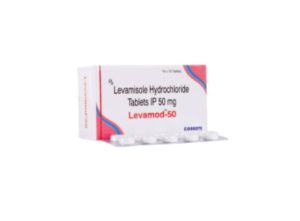
Here’s a detailed review of Cefetamet Pivoxil HCl, an antibiotic used for treating bacterial infections:
Description:
Cefetamet Pivoxil Hydrochloride is an oral third-generation cephalosporin. It is a prodrug of Cefetamet, which becomes active after being absorbed and metabolized in the body. Like other cephalosporins, it works by inhibiting bacterial cell wall synthesis, leading to the death of susceptible bacteria. Cefetamet Pivoxil is primarily effective against Gram-negative bacteria, with some activity against Gram-positive bacteria.
Brand Names:
- Altamet
- Tamat
- Cefetam
- Cepimet
- Pivoxil (varied brand names)
Available Forms & Strengths:
- Tablets: 500 mg, 600 mg
- Oral Suspension: 250 mg/5 mL
Uses:
Cefetamet Pivoxil is used for the treatment of various bacterial infections, including:
- Respiratory Tract Infections: Sinusitis, bronchitis, and community-acquired pneumonia.
- Urinary Tract Infections (UTIs): Both complicated and uncomplicated infections.
- Skin and Soft Tissue Infections.
- Ear, Nose, and Throat Infections: Including otitis media and pharyngitis.
Side Effects:
Common side effects associated with Cefetamet Pivoxil include:
- Gastrointestinal: Nausea, vomiting, diarrhea, and abdominal discomfort.
- Skin Reactions: Rash, itching, and rarely more severe reactions like erythema multiforme or Stevens-Johnson syndrome.
- Allergic Reactions: Urticaria (hives) and anaphylaxis in rare cases.
- Hematological: Transient changes in blood cell counts, such as neutropenia or thrombocytopenia.
- Liver Function: Mild, transient increases in liver enzymes.
- Superinfections: Overgrowth of non-susceptible organisms like yeast.
Dose:
- Adults: The usual recommended dose is 500-600 mg twice daily, depending on the type and severity of infection.
- Children: Dosed based on weight and severity of the infection. Pediatric suspensions are typically used for children.
- Duration: Usually ranges from 5 to 10 days, depending on the infection.
Contraindications:
- Hypersensitivity to Cefetamet Pivoxil, other cephalosporins, or any of the components of the formulation.
- Cross-sensitivity to penicillin, especially in patients with a history of immediate hypersensitivity reactions to penicillin.
Drug Interactions:
- Antacids and H2-blockers: May reduce the absorption of Cefetamet Pivoxil, making the treatment less effective.
- Probenecid: Increases the concentration of Cefetamet by inhibiting its renal excretion, which could increase the risk of side effects.
- Oral Contraceptives: Cephalosporins like Cefetamet may reduce the effectiveness of oral contraceptives, so alternative contraception should be considered during antibiotic therapy.
Warnings:
- Clostridium difficile-associated diarrhea (CDAD): Prolonged or severe diarrhea could indicate a serious condition caused by C. difficile. Contact a healthcare provider if this occurs.
- Renal Impairment: In patients with compromised kidney function, dose adjustment is necessary to prevent drug accumulation and toxicity.
- Superinfection: Long-term use of Cefetamet Pivoxil may lead to overgrowth of non-susceptible organisms, including yeast or resistant bacteria.
Special Considerations:
- Pregnancy: Cefetamet Pivoxil is classified as Category B. There are no well-controlled studies in pregnant women, so it should only be used if clearly needed.
- Breastfeeding: It is unknown whether Cefetamet Pivoxil is excreted in human milk, so caution is advised when used in nursing mothers.
- Pediatrics: The suspension form is typically used for children, but dosing must be carefully calculated based on body weight.
Doctor Advised:
Always follow the prescribed dosage and complete the entire course of therapy, even if symptoms improve. Discontinuing the antibiotic too early may result in bacterial resistance. Patients with a history of penicillin allergy should inform their doctor, as there may be cross-reactivity.
Conclusion:
Cefetamet Pivoxil HCl is an effective third-generation cephalosporin for treating a variety of bacterial infections, particularly respiratory and urinary tract infections. While it is generally well-tolerated, side effects and interactions must be considered, especially in patients with a history of allergies or kidney problems. Always follow medical advice regarding dosage and duration of use.







